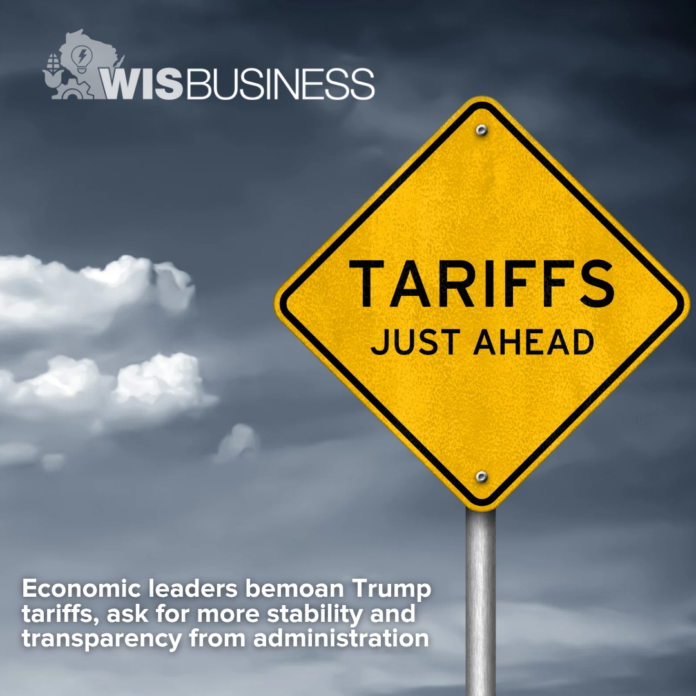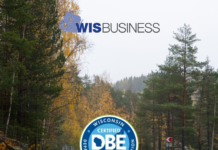Economic experts say the Trump administration’s tariffs have led to unpredictability, uncertainty and will likely lead to increased costs in Wisconsin.
A panel during yesterday’s WisPolitics-State Affairs and Wisconsin Tech Council luncheon said Wisconsin’s manufacturing, construction and agriculture industries so far have largely weathered the storm of tariffs. Businesses have been able to use lessons learned from the COVID-19 pandemic and tariffs from the previous Trump administration to help navigate the turbulent times.
Since the pandemic, businesses have strengthened supply chains and worked to ensure they can source products, materials, suppliers and buyers domestically. They’ve used those lessons to help stay afloat this year, the experts said.
But they also worried about economic stability and growth in the coming years.
Buckley Brinkman, executive director and CEO of the Wisconsin Center for Manufacturing & Productivity, said he dreams that “the three branches of government all start to do their jobs the way they were intended to do them so that we don’t have people constantly crossing the lines on what the original founders intended.”
“And that will end up with better policies, better ideas and more stability overall,” he continued. “And the second thing I’m dreaming about, and I think is coming about, is that people realize the critical importance of manufacturing to the economy.”
Roberta Oldenburg, director of business development for science and tech at Findorff construction, said she’s looking for more predictability and transparency.
“Because the changes that keep happening impacts pricing and planning, and no one really likes that,” she said. “So, again, more predictability and transparency so we can plan ahead.”
Menzie Chinn, economics professor at UW-Madison’s La Follette School of Public Affairs, said he wants to see the U.S. Supreme Court support the International Trade Court in striking down those tariffs that are imposed under the International Economic Emergencies Act.
“That would at least take away a lot of uncertainty, and I think uncertainty is a lot of what’s slowing down the economy on top of the higher input costs,” Chinn said. “There will still be uncertainty because there’s still policies that keep on being thrown at us – immigration, other trade policies, foreign direct investment snafus like raiding a Hyundai plant. So even getting rid of those tariffs, we’d still be in, I think, bad shape.”
Pam Jahnke, director at the Midwest Farm Report Network, simply asked for stability, noting Wisconsin’s soybean farmers, whose primary buyers are in China, have already been severely hurt by the tariffs.
“Just let me know what we’re doing,” she said. “I think to be honest, some of the damage has already been done. You can retract the tariffs, put a sunshine face on everything, [but] the damage has been done.”
Watch the luncheon.







